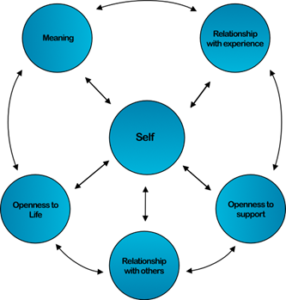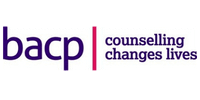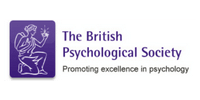Depression
Depression is a common condition that can cause serious difficulty with living. Though it is common to go through periods of feeling down, this is usually only temporary. This sadness could be due to a recent event like the loss of a loved one or job, or it could be a symptom of a more long-term problem like depression.
Depression is more than feeling unhappy or fed up. If you are depressed this low feeling can last for weeks or even months rather than just a few days.
Depression is a serious condition that can have a profound effect on every area of your life.
You may lose interest in activities that used to bring you joy, feel hopeless and helpless, or even think about suicide. Depression can make it difficult to function at work or school and can even lead to physical problems.

What is Depression
Depression is a mood disorder that affects how you feel, think and behave. It can lead to a variety of emotional and physical problems. You may have trouble doing normal day-to-day activities, and depression may make you feel as if life isn’t worth living.
Clinical depression, also called major depressive disorder, is a mental health condition characterised by a persistent low mood and loss of interest in activities.
How Common is Depression
Depression affects more than 264 million people of all ages around the world. It is the leading cause of disability worldwide. According to the World Health Organization, Depression is the most common cause of disabilities.
Depression is more common in women than men, and it often begins in the teens or early twenties. However, depression can happen at any age.
What Causes Depression?
There is no single cause of depression. It can be triggered by a life event such as the loss of a job or the death of a loved one. It can also be the result of chemical changes in the brain, an imbalance of neurotransmitters (chemicals that relay messages between neurons).
Other risk factors for depression include:
- A family history of depression
- Chronic health problems
- Certain medications
- Substance abuse.
What are the Symptoms of Depression?
Symptoms of depression can vary from mild to severe.
If you are experiencing some of the following symptoms for two weeks or more, you may be suffering from depression and should talk to your doctor:
- Persistent sad, anxious, or “empty” feelings
- Feelings of hopelessness, or pessimism
- Angry outbursts, irritability or frustration, even over small matters
- Loss of interest or pleasure in hobbies and activities
- Sleep disturbances, including insomnia or sleeping too much
- Tiredness and lack of energy, so even small tasks take extra effort
- Reduced appetite and weight loss or increased cravings for food and weight gain
- Anxiety, agitation, or restlessness
- Slowed thinking, speaking, or body movements
- Feelings of worthlessness or guilt, fixating on past failures or self-blame
- Trouble thinking, concentrating, making decisions, and remembering things
- Frequent or recurrent thoughts of death, suicidal thoughts, suicide attempts, or self-harm
- Unexplained physical problems, such as back pain or headaches.
What are the Treatments for Depression?
There is no quick fix for depression, but we can find a treatment plan that works well for you. There are a number of effective treatments available including medication, psychotherapy and lifestyle changes
The first step in treating depression can be to determine the cause. If your depression is the result of an underlying medical condition, treating that condition can help relieve the symptoms of depression. However, depression can also often feel like there is no reason or cause and can be worked with by exploring the experience in a supportive space guided by your therapist. There can also be times where the underlying cause can not be removed or managed. In these cases it is important to feel you have a safe space to talk through the experience. Your therapist can help you relive symptoms and work with you through the experience by offering different techniques and ways of working.
Exploring the lived experience of depression research suggests that a main factor central to the experience can be ones relationship with self and with this coming many of the should and musts that can be tied to ones identity. Depression is often experienced as having no clear cause and people are often left not understanding why they are having such experience this can further lead to not wanting to share their circumstance with others as they can also feel others will not be able to understand, people can feel isolated and frustrated with their experience and close down to potential opportunities in life further perpetuating what they are going through. Therefore, within treatment it is helpful to work with a therapist to understand the best approach for the type of depression you are experiencing and gain an understanding of what angle would be best to take for your particular situation that fits with you in planning a way out and back to before this started.
The diagram below shows the different areas that link together in the experience of depression.

Medication:
One theory of depression is that it is caused by chemical changes in the brain may require medication to restore balance. Antidepressant medications can take several weeks to work and may have side effects however, these lessen during the first few weeks and can be different for each medication. There is not only one type and you can try different ones until you find the one that is right for you.
Psychotherapy, or “talking therapy”:
can be an effective treatment for depression. It can help you identify and change negative thinking and behaviour patterns as well as understanding yourself and your situation and changing your relationship with what you are going through relieving the experience of depression.
Cognitive behavioural therapy (CBT):
CBT is a type of psychotherapy that focuses on changing negative thought and behaviour patterns to improve mood.
Interpersonal therapy (IPT):
IPT is another type of talk therapy that focuses on relationships and social support systems to treat depression.
Existential therapy
This type of therapy for depression can use the therapeutic relationship to focus on concerns around identity, self, meaninglessness, and isolation among other existential concerns.
Lifestyle changes:
can also help relieve the symptoms of depression. Exercise, a healthy diet and getting enough sleep are all important factors in managing depression.
Natural Remedies:
In addition, there are a number of natural remedies that may help relieve the symptoms of depression. These include omega-3 fatty acids, St. John’s wort and SAMe.
If you are suffering from severe depression, it is important to seek treatment. Depression is a serious condition that can impact your life if left untreated. If you are having thoughts of harming yourself, please call the national suicide prevention lifeline or Samaritans or seek help from a mental health professional. These thoughts can be common with depression.
Related Conditions
Bipolar Disorder:
People with bipolar disorder experience extreme mood swings and experience periods of depression and mania often with periods of stable mood in between.
Seasonal Affective Disorder (SAD):
On this occasion it is common for the person to experience depression-like symptoms during the darker winter months but not during the summer months.
Post-Natal Depression:
This is a form of depression that occurs after childbirth.
Obsessive-Compulsive Disorder:
People with OCD experience extreme anxiety and compulsions that can interfere with their daily lives.
Post-Traumatic Stress Disorder:
This is a type of anxiety disorder that can develop after exposure to a traumatic event or prolonged exposure to challenging situations for example bullying.
Schizophrenia:
This is a complex and serious mental health disorder that affects how the brain functions. People with schizophrenia may experience hallucinations or delusions, among other symptoms.
Dysthymia:
This is a long-term form of depression that can last for years or even decades.
As you can see from this list of related conditions, depression is often associated with a number of other mental health disorders. However, each of these conditions should be treated separately and with care to ensure the best possible outcome.
If you are suffering from depression, it is important to seek treatment as soon as possible. There are a number of effective treatments available and the sooner you seek help, the better the chances of recovery.
If you are struggling withdepression, it is important to seek professional help. There are many resources available to help you get the treatment you need.







